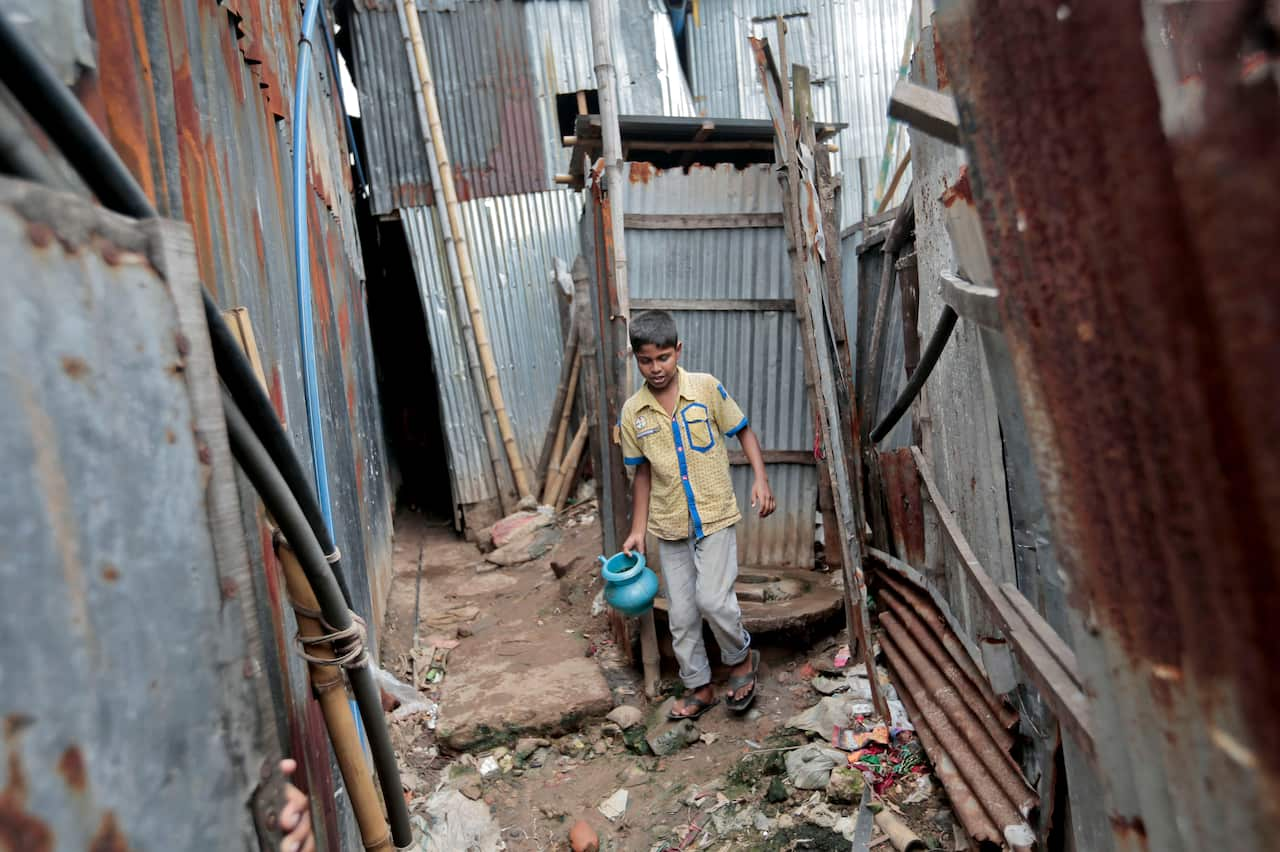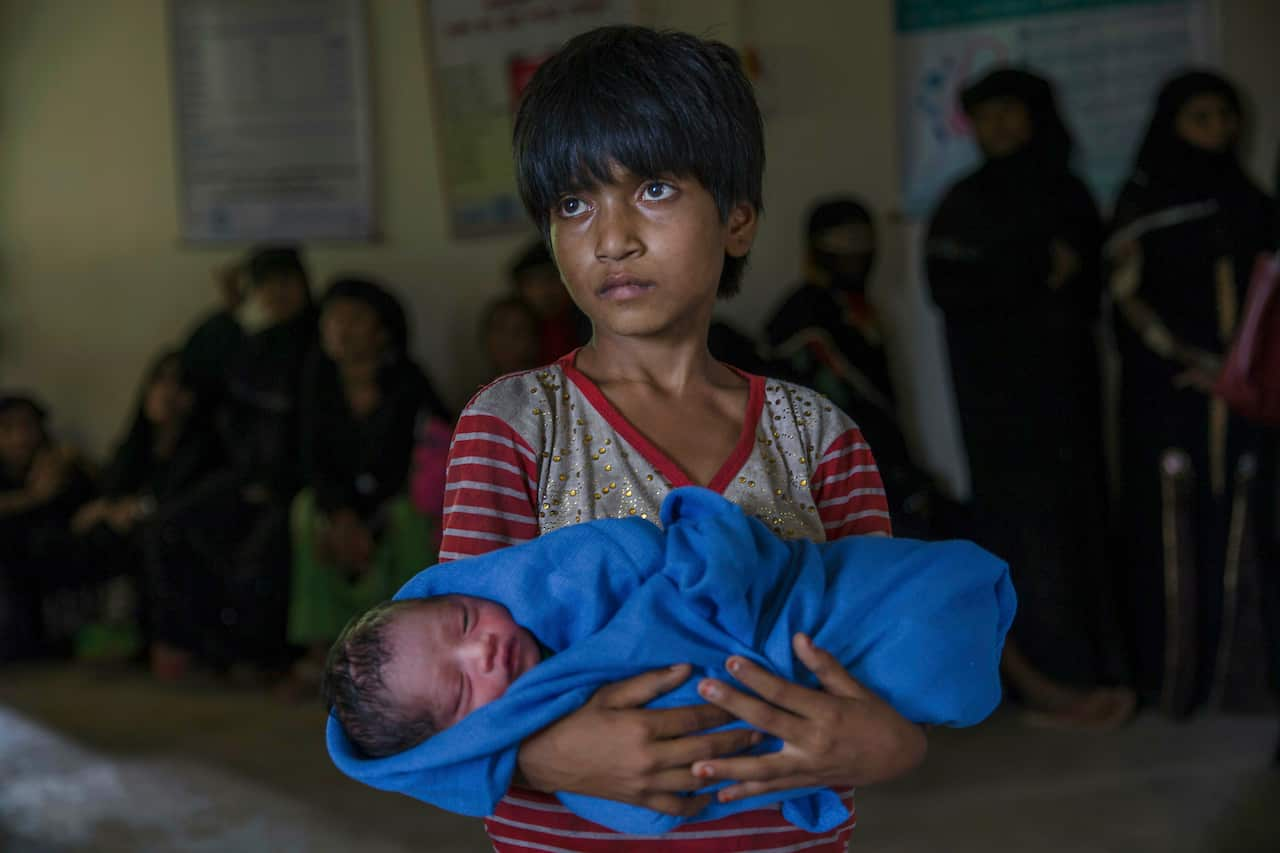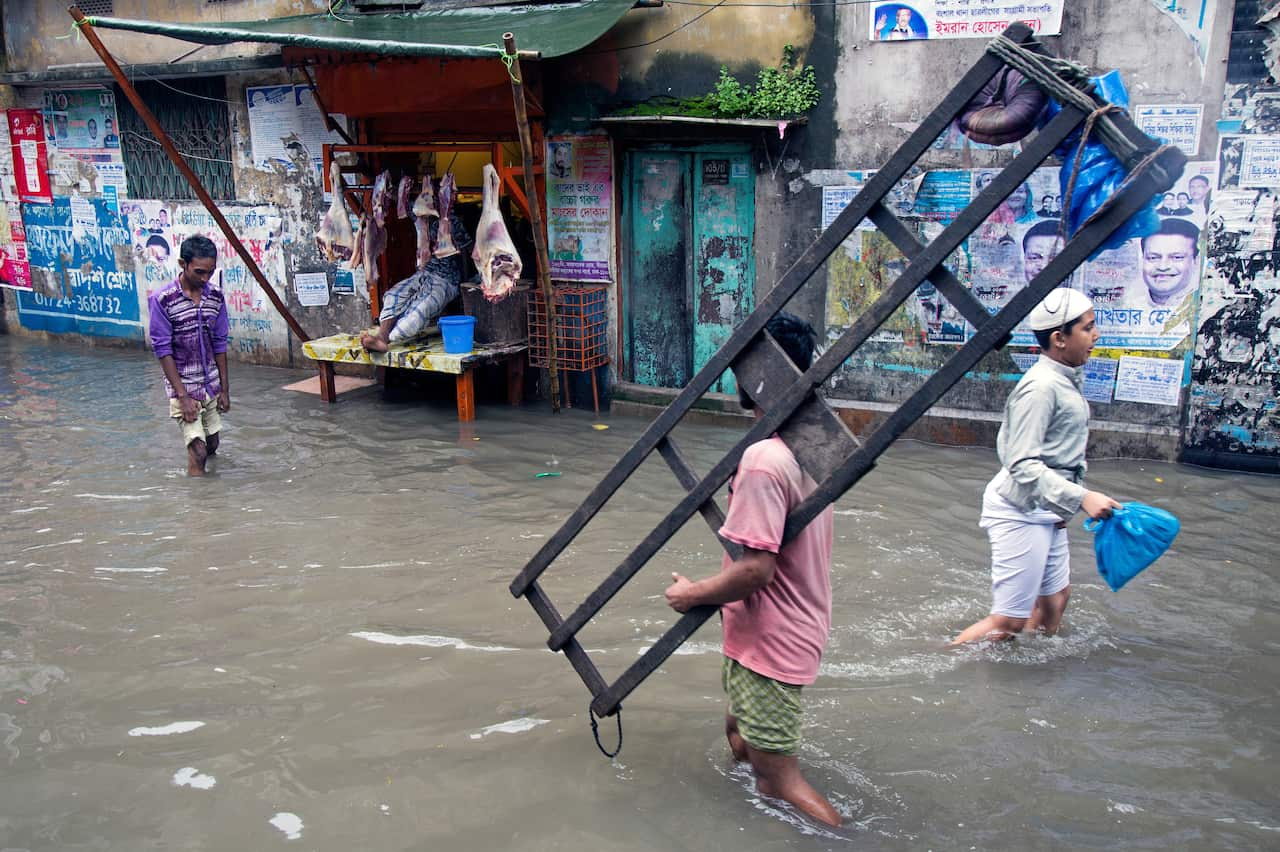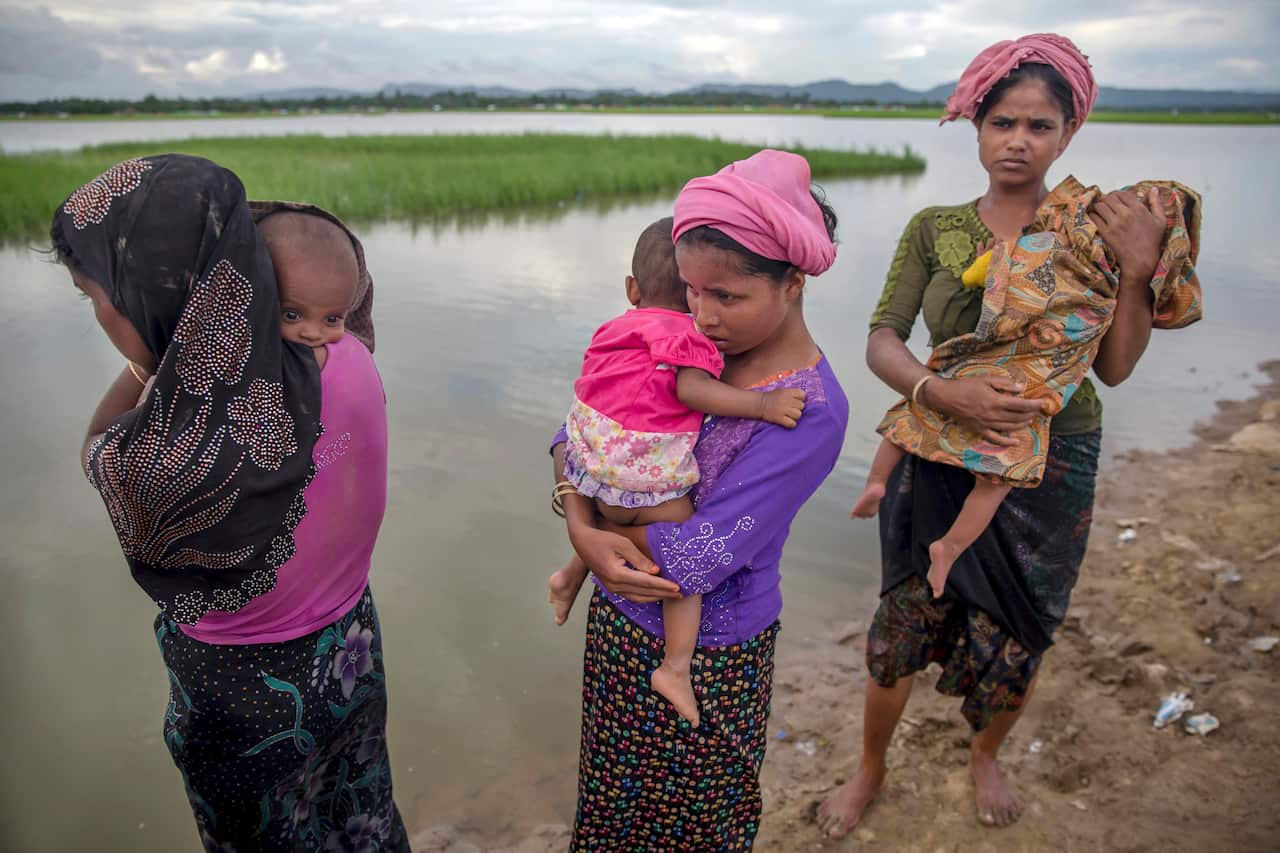Climate change in Bangladesh could impact the lives of more than 19 million children, according to a new UNICEF report.
The humanitarian agency said on Friday that the country’s flat topography, dense population and weak infrastructure makes it “uniquely vulnerable to the powerful and unpredictable forces that climate change is compounding”.
The report author, Simon Ingram, said the danger was "flooding is extreme and it is almost on an annual basis”.

The report, titled "Gathering Storm: Climate change clouds the future of children in Bangladesh", showed about 12 million children currently live in and around powerful river systems, which flow through Bangladesh and regularly burst their banks.
Another 4.5 million children live in coastal areas, which are regularly struck by powerful cyclones, including almost half a million Rohingya refugee children from neighbouring Myanmar - living in makeshift bamboo and plastic shelters.
A further 3 million Bangladeshi children live in farming communities, which are facing increasing periods of drought.
The report also found a link between climate change and child marriage, child labour and access to education is evident in various parts of Bangladesh.
"Climate change is undoubtedly increasing the number of children who are pushed into the workplace, where they miss out on an education and are terribly exposed to violence and abuse," UNICEF Bangladesh Child Protection specialist Kristina Wesslund said.

Bangladesh has one of the world's highest rates of child marriage, with nearly a third of girls married before the age of 15.
Child protection specialist Gyas Uddin agreed with the report's findings.
"Climate change makes people poorer and poverty is a major factor behind child marriage," he told AFP.
In 2007, a powerful cyclone killed nearly 4000 people and impacted hundreds of thousands more.

The most recent flooding of the Brahmaputra River in 2017 damaged 50,000 tube wells, which impacted safe, drinking water and had almost 500 health clinics bursting at the seams with residents needing urgent medical treatment.
"This had an enormous effect not just in terms of displacing families and pushing them out of their homes,” Mr Ingram said, adding the “destruction that it caused to health facilities and to basic services like water and sanitation”.
UNICEF also said a change in climate was pushing poorer Bangladeshis from rural areas and into the capital Dhaka and other major cities for resources, where children's rights can be violated.

Mr Ingram said there were already six million climate refugees in Bangladeshi cities, a number that could double by 2050.
Rising sea levels leading to unchecked saltwater intrusion also posed a threat to pregnant women, with the report showing an increased risk of medical conditions, including pre-eclampsia and hypertension, identified among mothers-to-be at the coast.
Additional reporting AFP

